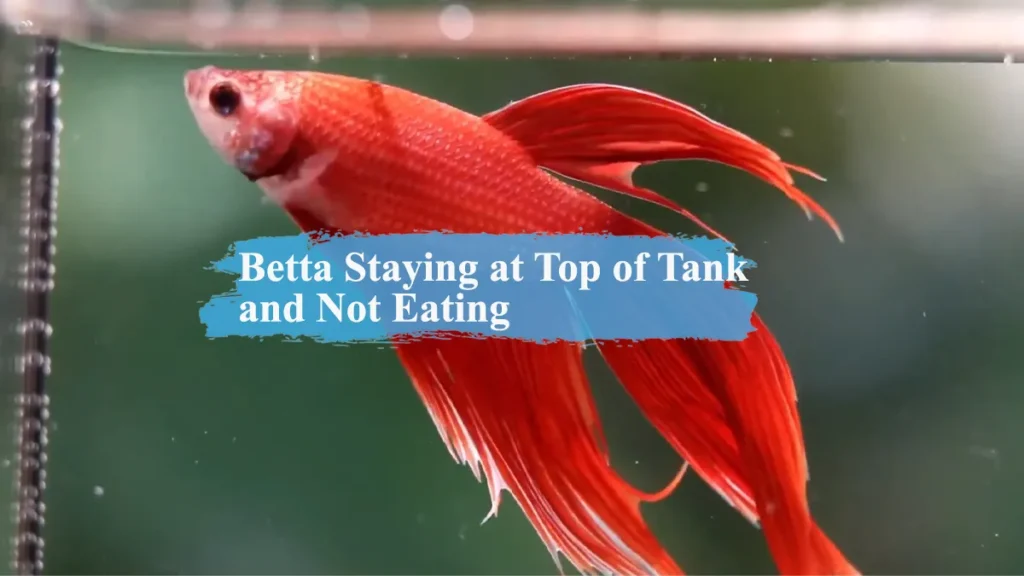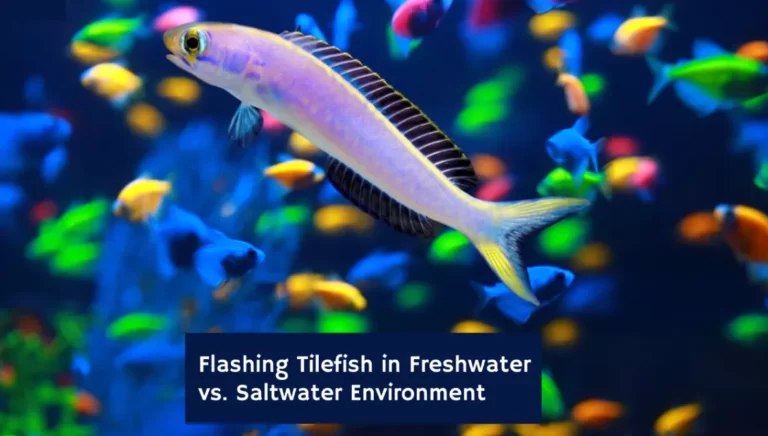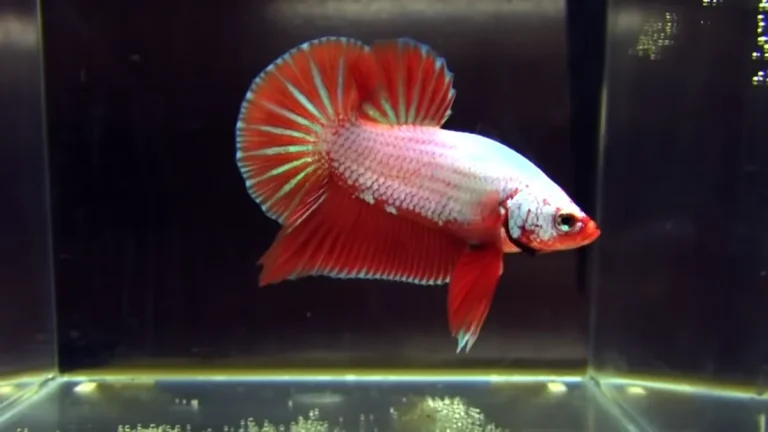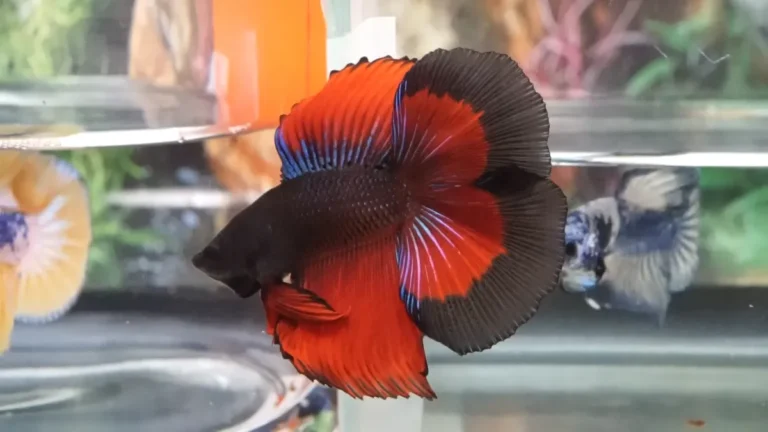Betta Staying at Top of Tank and Not Eating

Betta Staying at Top of Tank and Not Eating
Let’s get right to the heart of the matter. Why is your betta fish behaving this way? Well, there could be several reasons behind this puzzling behavior, and it’s crucial to understand them to ensure your betta’s well-being.
| Possible Reasons | Solutions |
| High ammonia levels | – Perform regular water tests and monitor ammonia levels. – Conduct routine water changes to maintain water quality – Use a water conditioner to detoxify ammonia |
| Poor water quality | – Test and maintain appropriate water parameters – Clean the tank regularly to remove waste and uneaten food – Ensure proper filtration and circulation in the tank |
| Stress or aggression | – Assess tank mates and remove aggressive ones – Provide hiding spots and territories in the tank – Monitor tank mate behavior and intervene if necessary |
| Illness or disease | – Observe betta for symptoms of illness – Isolate betta in a quarantine tank – Consult a veterinarian for diagnosis and treatment |
High Ammonia Levels in the Tank
Ammonia is toxic to fish and can have detrimental effects on their health. When ammonia levels rise, bettas may exhibit abnormal behaviors, such as staying at the top of the tank and refusing to eat. It’s essential to address this issue promptly. Here’s what you can do:
- Regularly test the water parameters using an aquarium test kit. Keep a close eye on the ammonia levels.
- Perform routine water changes to remove accumulated toxins and maintain a clean environment for your betta.
- Use a water conditioner to neutralize harmful chemicals like chlorine and chloramines, which can contribute to ammonia buildup.
Poor Water Quality or Improper Tank Conditions
Inadequate water quality or improper tank conditions can also cause your betta to exhibit unusual behaviors. To ensure optimal conditions for your finned friend, consider the following:
- Test and maintain appropriate water parameters, including temperature, pH, and hardness.
- Clean the tank regularly to remove waste, uneaten food, and other debris that can contribute to poor water quality.
- Ensure proper filtration and water circulation in the tank to keep the water clean and oxygenated.
Stress or Aggression from Tank Mates
Bettas are known for their territorial nature, and incompatible tank mates can lead to stress and aggression, prompting your betta to stay at the top of the tank and refuse to eat. To manage aggression and stress:
- Assess the compatibility of tank mates with bettas. Avoid keeping aggressive or fin-nipping species together.
- Separate aggressive tank mates and provide them with alternative housing.
- Introduce hiding spots, plants, and decorations in the tank to create territories and alleviate stress.
- Monitor the behavior of tank mates and intervene if necessary to prevent bullying or harassment.
Illness or Disease
Sometimes, an underlying illness or disease can be the culprit behind your betta’s unusual behavior. It’s crucial to watch for symptoms and take appropriate action if you suspect your betta is unwell. Here’s what you can do:
- Observe your betta closely for signs of illness, such as lethargy, loss of appetite, or abnormal behavior.
- Isolate the betta in a separate quarantine tank to prevent the spread of disease to other fish.
- Consult a veterinarian or a knowledgeable fish expert for a proper diagnosis and treatment plan.
- Administer any prescribed medications and provide optimal water conditions to support your betta’s recovery.
Addressing the Issue
Now that we’ve explored the possible reasons behind your betta fish staying at the top of the tank and not eating, let’s dive into some related questions and provide specific solutions to address these concerns.
Related Post: Betta Fish Staying at Top of Tank After Water Change: What to Do?
How to Improve Water Quality
Maintaining optimal water quality is crucial for the health and well-being of your betta. Here are some steps you can take to ensure pristine conditions:
- Regularly test the water parameters using a reliable aquarium test kit. Keep an eye on temperature, pH, ammonia, nitrite, and nitrate levels.
- Perform routine water changes, typically 20-30% every one to two weeks, to remove accumulated toxins and maintain a clean environment.
- Use a water conditioner to neutralize harmful chemicals like chlorine and chloramines, which can stress and harm your betta fish.
Dealing with Aggression or Stress from Tank Mates
Choosing suitable tank mates for bettas is essential to prevent stress and aggression. Follow these tips to manage aggression and promote a harmonious environment:
- Research and select compatible tank mates that won’t provoke your betta or nip at its fins.
- If aggression persists, separate aggressive tank mates and consider providing them with alternative housing.
- Create hiding spots, add plants, and use decorations to establish territories and reduce stress levels.
- Regularly monitor the behavior of tank mates and intervene if necessary to ensure a peaceful coexistence.
Identifying and Treating Illness or Disease
Recognizing signs of illness in betta fish is vital to provide timely treatment. Here’s what you can do if you suspect your betta is unwell:
- Observe your betta closely for symptoms like loss of appetite, lethargy, abnormal swimming patterns, or external abnormalities.
- Isolate the betta in a separate quarantine tank to prevent the spread of disease and facilitate focused treatment.
- Consult a veterinarian experienced in fish health to obtain a proper diagnosis and treatment plan tailored to your betta’s needs.
- Follow the prescribed treatment, administer medications as directed, and provide a stress-free environment to aid in your betta’s recovery.
Related Post: Can You Use Distilled Water for Betta Fish?
FAQ (Frequently Asked Questions)
Let’s address some common questions and concerns that often arise when betta fish exhibit the behavior of staying at the top of the tank and not eating:
Can fasting improve the betta’s condition?
While occasional fasting can be beneficial for bettas, it’s essential to ensure they receive proper nutrition. Fasting for more extended periods may weaken the fish and hinder their recovery. Consult a veterinarian to determine the best approach for your betta’s specific situation.
How long can a betta survive without eating?
Bettas can typically survive for several days without eating. However, extended periods without food can weaken their immune system and overall health. It’s crucial to identify and address the underlying cause promptly to restore your betta’s appetite and well-being.
Should I try different types of food?
Variety in a betta’s diet is essential for their overall health. Offering a diverse selection of high-quality pellets, frozen or live foods can entice a picky eater. Experiment with different food options, but be mindful of the nutritional requirements and avoid overfeeding.





![Is Duckweed Good for Bettas? [Explain]](https://aquariumwiz.com/wp-content/uploads/2023/07/Is-Duckweed-Good-for-Bettas-768x432.webp)